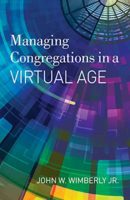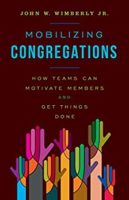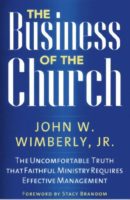Many things we do in congregations are default ministries. We worship God; engage in compassionate, active pastoral care; seek to help our members grow spiritually; and find faithful ways to serve our neighbors near and far in mission. These default ministries have been going on since the creation of congregations. If we aren’t doing these basic things well, we and our congregations will suffer.
Some people don’t like default settings. But there is a certain comfort in the default nature of our basic work in a congregation. Preparing worship services every week has a calming rhythm to it—pick the Scriptures, select the hymns, write the responsive parts of the liturgy and so on. As I did these things week after week for forty years, I felt at one with God and, almost as fulfilling, one with clergy who, for centuries, have done the same basic things.
In like manner, there is a spiritual peacefulness to the occasional chaos of pastoral care. People are born, people die, relationships develop and become marriages, relationships dissolve and end up in divorce. Walking with people as they go through the various highs, lows and in-betweens of life is basic to ministry. Any clergy who ignore the pastoral care default setting in congregational ministry not only miss the power of being present with and to people, they also jeopardize their relationship with the congregation.
How we do what we do
However, while there are basic default ministries that must take place in every congregation, how we do these defaults is not a given. The activity itself is a default; the way in which we do the activity is not. Worship is certainly an example. While Eastern Orthodox, Roman Catholic, Protestant, Jewish and other types of congregations all see worship as a default experience, they worship quite differently from each other. In some congregations, the bulk of pastoral care is done by the pastor; in others, much of the pastoral care is member-to-member.
Congregations create difficulty for themselves when they turn the “how” of ministry into a default. They only use the music their grandparents used; design mission programs that worked in the 20th century but will fail in the 21st century; approach stewardship with models that no longer tap the generosity of current generations.
When we propose introducing change into our congregational systems, I recommend that leaders differentiate between ends and means. The Great Ends of the Church have not changed and will not change. We need to reassure our members that we are not deviating from these Great Ends. However, the means to the Great Ends of the Church change constantly. When changed is framed this way, reasonable people will be reassured that we aren’t tossing out the baby with the bath water. We are working toward the Great Ends, but evolving in how we attempt to achieve the basic purposes of the church or synagogue.
More change now?
Unlike some people, I do not think the need for change today is any greater than it was when prior generations of pastors were leading their congregations. I mean, really: are today’s changes greater than coping with a war of liberation against England in the middle of the 18th century, a civil war and its fallout in the middle of the 19th century, or the collapse of the world economy in the Great Depression in the middle of the 20th century? I don’t think so! How we do ministry is always changing because the environment in which we do ministry is always changing. Changes today seem radical only because they are radical to us.
Amidst so much change, century after century, congregational defaults are our great strength. We pursue the Great Ends regardless of what is happening about us. However, how we pursue the Great Ends is where we cannot rely on default settings. We must use intelligence, imagination and love to find new ways to serve the members of our congregation, our communities and the world. It is the hardest work we do. It is the most rewarding work we do.
John Wimberly is an experienced pastor and consultant. As a consultant, he has worked with congregations and judicatories on strategic planning, staff designs for the 21st century, and congregational growth as well as financial and administrative management. He has MBA, MDiv, and PhD (theology) degrees. His books focus on effective management and leadership. John believes congregations can have a bright future!



